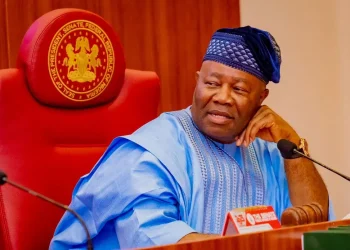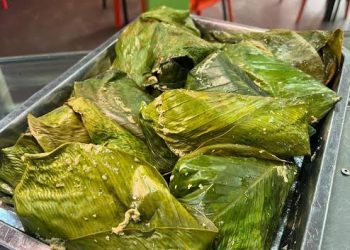Yes, there are wealthy people and tribes in Africa- not every African is a product of underdevelopment. So, keep reading as we enlighten you on the top 10 Richest tribes in Africa.
Are you surprised to see wealth in the same sentence with Africa? Don’t be! There are over 3,000 tribes and dialects in Africa- quickly making it the second most populous continent on earth. Out of these large numbers, several ethnic groups have grown to be Prosperous African clans.
Wealth and Africa
Due to their financial intelligence and impressive financial acumen, these tribes have surpassed the challenges of their background and risen as the Most Affluent tribes in Africa.
Igbo, Nigeria
The vibrant Igbo tribe, renowned for their rich cultural heritage, is the wealthiest African tribe. The Igbo people are celebrated for their entrepreneurial spirit. It has been the driving force behind their financial prosperity. From small-scale local businesses to international trade networks, the Igbo have demonstrated a remarkable ability to create and sustain economic ventures.
A significant aspect of the Igbo wealth is their historical involvement in trade and commerce. Cities like Aba are their manufacturing sites while Markets like the Onitsha Main Market serve as vibrant hubs where goods and services flow, contributing to the overall economic vitality of the tribe.
Furthermore, the mentorship system, popularly called ‘boy-boy’ helps the clan groom and establish young men.
Another admirable trait that has helped the Igbo people is their remarkable ability to adapt to the changing economy. This adaptability, coupled with a culture of innovation, positions them to seize new opportunities and navigate challenges in an ever-evolving global economy.
Yoruba, Nigeria
While the Igbo people are the powerhouse of Southeast Nigeria, the Yoruba tribe is the wealthy nation of Southwest Nigeria.
Widely known for its colourful festivals and ancient traditions, this is a community that has mastered the delicate dance of economic prosperity.
Originally the Yoruba people were adept traders and merchants. Their geographical location supported their commercial activities. Situated at the crossroads of key trade routes, Cities like Ile-Ife and Oyo became economic hubs, showcasing the Yoruba knack for trade and the accumulation of wealth through commerce.
Before the onset of modernisation and even now, Agriculture, with its emphasis on crops like cassava, yams, and cocoa, has been a source of sustenance and financial wealth to the Yoruba tribe. Their agricultural activities not only feed the community but also contribute significantly to the region’s economic prosperity.
The artistic expressions of Adire textile production and the intricate bronze casting of Ife are also lucrative industries in the Yoruba tribe. Adire are textile materials soaked in dye to produce vibrantly designed materials. These endeavours display an admirable tendency to turn creativity into financial gain.
Diversity is synonymous with the Southwestern tribe of Nigeria and even their wealth attests to it. The embrace of modern ventures, from technology startups to diverse business enterprises, reflects an adaptability that ensures the continuity of financial wealth. The Yoruba tribe navigates the currents of change, integrating traditional wisdom with contemporary opportunities.
Zulu, South Africa
In the heart of southern Africa, the Zulu tribe’s legacy extends far beyond the echoes of historic battles and the iconic warrior spirit. So, what is the source of their wealth?
Members of this tribe are exceptional cattle rearers. More than mere livestock, cattle are a form of currency, a measure of wealth, and a source of sustenance. The Zulu people’s skilful management of their cattle herds is not only a testament to their agricultural acumen but also a key pillar of their financial wealth.
Well, Africa is known for its artistic wonders. One of the tribes responsible for this reputation is the Zulu tribe. From intricately beaded jewellery to masterful woodwork, Zulu artisans transform traditional skills into sources of income. The vibrant markets of KwaZulu-Natal showcase a thriving economy driven by the creativity and craftsmanship of the Zulu people. With the increase in global impact and tourism, the Zulu people have capitalized on the allure of their traditions. Cultural tourism, from immersive village experiences to vibrant festivals, has become a source of economic growth.
Pedi, South Africa
The Pedi clan of South Africa is mostly situated in the nation’s Limpopo region. Like their counterparts in the Zulu tribe, agriculture is a big deal.
Their economy is dependent on their management of livestock and agricultural resources. Cattle, goats, and sheep represent a form of currency and status.
Secondly, the vibrant markets of Pedi communities are a beautiful backdrop of craftsmanship. From intricately woven baskets to vibrant beadwork, Pedi artisans infuse traditional skills with a commercial spirit.
Hausa, Nigeria
The Hausa tribe is well-known for their commercial spirit and business acumen. Centuries-old markets, such as Kano’s Kurmi Market, stand as bustling hubs where goods from across the region are exchanged.
From the cultivation of staple crops like millet and sorghum to the nurturing of cash crops such as groundnuts and cotton, the Hausa people have sustained themselves while actively participating in regional and international trade.
The Hausa’s artistic expressions include leatherwork, textiles and metal artworks.
Zuri, Ethiopia
The Zuri tribe of Ethiopia owes its wealth to its land. From the rich soil for agriculture, and rivers teeming with aquatic life, to forests providing timber and medicinal herbs.
Their cultural heritage displays textiles, pottery, and artworks- each of their major sources of income.
Ashanti, Ghana
The Ashanti tribe is synonymous with Gold. Before the discovery of gold, its inhabitants were skilled merchants, farmers, and artisans. However, the development of gold mines boosted the wealth of the region.
El Molo, Kenya
The El Molo tribe of Kenya is the smallest indigenous group in Kenya. The El Molo people are chief fishermen and hunters.
Xhosa, South Africa
The source of wealth of the Xhosa tribe is similar to those of its peers, the Zulu and Pedi clans. Agriculture and unique artworks are the predominant activity of this tribe.
Oromo, Ethiopia
The Oromo people are the largest ethnic group in Ethiopia. Their fertile Highlands and lowlands cultivate coffee, Barley, and other agricultural products. Livestock, commerce, and artworks are also common sights in the region.
Wrap up
Africa, the land of the black man and black soil is rich in human and agricultural resources. While most of the richest ethnic groups initially built their wealth from agriculture, they also have the foresight to dance with the global economy.
Their wealth is a testament to the strong adaptable African spirit.


























Igbo people are truly the richest tribe in Africa. These guys understand their coins very well when it comes to trade, commerce, industry, science and technology. It will surprise you to know that whatever an Igbo man is today, is a product of €20. Every Igbo man regardless of how much he had before the bloody civil war, lost everything and started life afresh with this token given to them by govt after the war. It beats imagination how afternoon about 50 yrs these people rose back to their feat beat every other tribes economically.
Leave a comment…My name is eze chineye Geny. Am proud of my tribe which is igbo tribe.
Leave a comment…I love my tribe which is igbo tribe. I brag about our wealth and intelligency.
Leave a comment…We are the number1 tribe in nigeria, it is not easy, the people that went this lenght to grow and develop our tribe, i love u all. People like phyno, flavour, igele and others, i love u all.